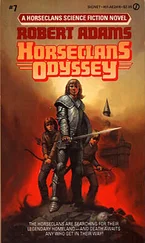Then, suddenly, as much as a hundred miles inland, all along the eastern coast, the land subsided and the sea came pouring, boiling in. On the southern coast, it was even worse, for the entire peninsula long ago called Florida sank until most of it was, at best, a salt fen, only its rare highlands really above the highest tides.
A second great earthquake sank most of that area once called Louisiana, along with vast stretches of land to the west and the east of it, becoming only an estaurine bay of the vastly enlarged Gulf of Mexico. The Caribbean Sea had shown its own rapaciousness, too, avidly gobbling up coastlines, islands, cays and keys. Most of those lands, islands and islets left above water were smaller, lower and still racked by earthquake aftershocks and some volcanism.
But elsewhere, new lands were formed—the Bermuda Islands having been transformed by risings into a virtual archipelago, almost circular, and almost completely surrounding a shallow salt lagoon, in which lay a broad, hilly island of seabed rock, bare as a picked skull.
After the earth had ceased its agonized spasms, the survivors—plant, animal and human—began to adjust to the new order of lands and seas, to breed and repopulate, to build anew. Some years later, subsequent to a civil war in Kehnooryos Ehlahs, the losers enshipped, sailed down one of the rivers and out to sea, finally making landfall at the collection of new and older islands some hundreds of miles off the east coast.
In the beginning, they made their homes on some of the less rocky, more southerly islands, refurbishing ancient ruins, farming where decent soil remained, breeding small numbers of stock beasts on the strictly limited graze, fishing, and in times of desperation, raiding the coasts and riverways of their previous homelands to the west. But after, themselves, suffering the effects of raids, they first built a citadel on the rocky isle in the inner lagoon, then began to ship load after load of fertile soil over to fill in the terraces they were constructing of material mined from the rocks themselves.
Slowly, painfully, abodes were chipped out, multi-chamber homes mined into the very rock that had underlain seabed ooze from time out of mind until the upheavals had forced it from endless darkness into the glare of the sun and the silvery rays of the moon. By the time that few of the third generation of islanders were left alive, much had been accomplished and the isle was mostly become green and productive.
Even so, however, there simply was no way to feed the ever growing population from its yield, no matter how bountiful, nor did the drudgery of farming and fishing come easily to these men, who were mostly the descendants of noble warriors, not of farmers and laborers. And so, sometime in the fourth generation, they slid into piracy on shipping—both coastal shipping and maritime—and began to mount regular raids on the coasts to the west, not just against their own ancestors’ place of origin but against all of the lands and cities their ships and men could easily reach.
At first, the raiders brought captives in only as slaves, for the work of making their home a near-impregnable fortress went on. Ways were found to block all save a single, treacherous channel to the open sea from the lagoon—native seamen could negotiate it easily and with relative speed, while non-natives perforce had to feel a way along with a leadsman always astride the bowsprit, the snail-crawl progress making of a stranger’s ship an easy target to the guards on the cliffs on either hand.
Stones were quarried from the newer, bare-rock isles and barged across the lagoon to the older, lower isles, there to be used in the construction of fortifications and underwater obstacles to hinder the landings of boats on the beaches. Other fortifications and lookout towers were built atop the highest pinnacles of rock. In addition, shipload after shipload of rich soil was brought in from the less populated portions of coastlines and was used to fill terraces built into the lagoon-sides of the surrounding isles.
But as the years followed one after the other and the raidings and piracies and sea-fights and storm-losses of ships and whole crews went on, the slaves began to outnumber the free men and women in the isles, and, at length, one farsighted Lord of the Isles persuaded the Council of Shipmasters to proclaim an end to slavery, giving every living, hale, male slave the right to either ship aboard one of the raiders as a free crewman and warrior or remain ashore to perform one of the numerous necessary trades or crafts in support of the fleet. The pirates and raiders also began to let it be known that slaves of mainland masters with enough guts to attach themselves to raiders’ shore parties or otherwise get to the Sea Isles would find a welcome there, just so long as they paid their way and lived according to the Laws of the Isles.
Over the years, a true society developed, an ordered society, with customs and laws and usages of its own. The Lord of the Isles, chosen upon the death of his predecessor by the Council of Shipmasters, was usually—but not always!—a descendant of one of the original Ehleen settlers, and while no one of these families was even near to being of the purity of lineage that the mainland Ehleenohee called kath’ahrohs , most of them did try to kidnap and marry Ehleen women of good family, now and then in their raidings; moreover, they made sure that a priest of the Ehleen sect was always in residence in the Isles, honored after a fashion and supported handsomely.
At a time about a hundred and fifty years after the settlement of the Isles, a non-Ehleen Lord of the Isles, Lord Djahn Krooguh, who had been a mainland slave before becoming a pirate, made a momentous and a very valuable discovery. This lord happened to be a telepath, and, having mentally communicated with various beasts in his youth, before being enslaved, he sent out a beam to a pod of eheethosee —great black-and-white dolphins, called by other peoples grampuses or orcas or killer whales. Shortly, to the real terror of his crew, his small ship was surrounded by the eheethosee — their dorsal fins towering up higher than any of the men, some of them almost as long and as broad abeam as the cockleshell ship. Nor did any one of the crewmen believe for one minute that their very new lord could or was conversing in silence with the pod of sea-monsters, not at first.
But in time such communication came to be accepted among the folk of the Sea Isles and a tenuous bond between man and ork—as they came to be called, adopting a barbarian word for them—was established. Lord Djahn sought out telepaths or those with the ability to develop into such amongst his people and tried to place at least one aboard each of the active ships; so too did all his successors, and, eventually, the telepathic ability became one of the criteria for not only becoming Lord of the Isles, but even succeeding to a command of a ship.
Not only did the orks provide security for the Isles, they became most adept at exploring coasts and harbors for raiders, or seeking out prey on the open seas for pirates. On occasion, two or three or more of them had butted the side of a ship in unison, disordering the crew just before a pirate ship closed with the vessel.
Although the orks were far from averse to consuming dead bodies cast into the water—thus easing the problem of disposing of deceased Isle-folk without attracting sharks and other dangerous scavengers to the environs of the Isles—the sleek creatures often remarked that they preferred seals or fish or whales, so not a few of the pirates wondered now and again over the years just what kept the valuable marine allies so drawn to them. None of them ever learned, dying still ignorantly accepting the fact of the orks’ inexplicable allegiances.
Читать дальше












